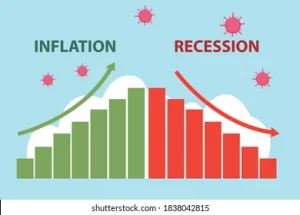
The exchange rate for import duties collection by the Nigerian Customs Service (NCS) has risen to N1457/$, the highest in just over six weeks, according to checks on the exchange rate portal of the NCS.
According to data on the portal, the current customs exchange rate is the highest since the 22nd of March 2024 when the figure stood at N1572.5/$.
There has been a gradual appreciation of the naira after that, occasioned by policies of the Central Bank of Nigeria (CBN) which saw the NCS’ exchange rate fall to a three-month low of N1147/$.
However, the naira seems to have lost the gains made in March, in which it became the best performing currency in the world for the month, according to analysis from Goldman Sachs bank.
An earlier on the performance of the naira in the month of May reveals that it has weakened by 26% since the declaration by CBN and other institutions of its status as the best performing currency in the world.
The naira on Friday closed at N1466/$ on the official window, according to data from FMDQ. In the parallel market, the exchange rate stood at N1470/$, according to information from operators in that space.
The decline in the value of the naira since April coincides with the end of the sale of FX to BDCs below the official market rate. The Central Bank of Nigeria (CBN) intervened in the FX market by selling $10,000 to Bureau De Change (BDC) operators just below the official market.
This event coincided with a drop in the country’s foreign reserves, which led analysts to opine that the apex bank was defending the naira with the country’s FX reserves.
Nigeria’s FX reserves declined by $1.02 billion in just 18 days, which coincided with the period the naira made significant gains against the greenback.
However, the Governor of the CBN, Yemi Cardoso, had stated during the World bank-IMF spring meeting that this was not the case.
He had said that the shift in the FX reserves was due to debt payments which were due. He further noted that the apex bank had no plans to defend the naira, noting that it contradicted its willing buyer and seller policy.According to him, “The shift you see in our reserves has little or nothing to do with defending any naira and that is certainly not our objective.”
“What you see with respect to the shifts in our reserves is the shift you will find in any country’s reserve situation where for example debts are due and certain payments need to be made and they are made because that it also part of keeping your credibility intact.”






